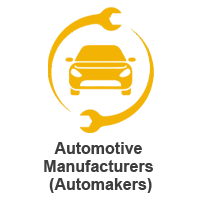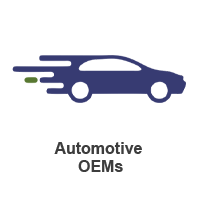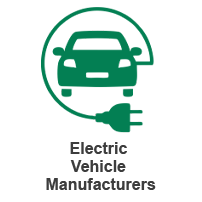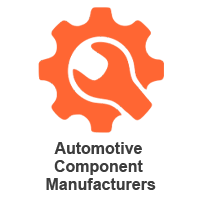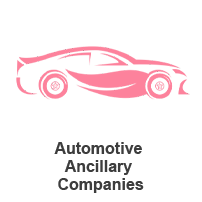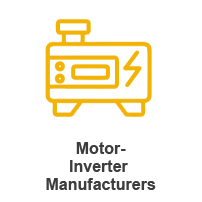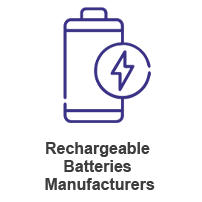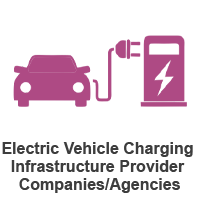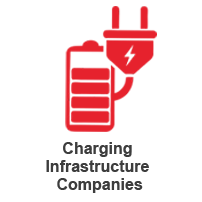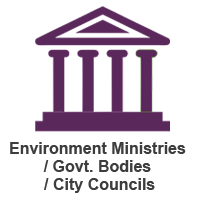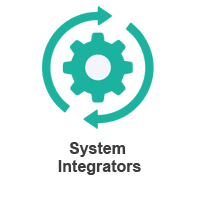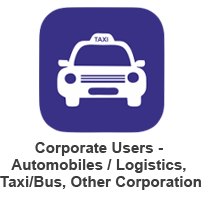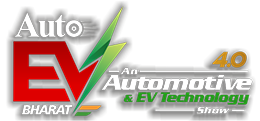
Auto EV Bharat 2025 Bengaluru: India’s Leading Automotive Technology Expo
Auto EV Bharat 2025, scheduled from 19–21 November at KTPO Convention Centre, Whitefield, Bengaluru, is India’s premier automotive and EV technology exhibition, uniting over 350+ exhibitors from across the globe. As the leading platform for the electric mobility ecosystem, the event showcases the latest innovations in electric vehicles (EVs), charging infrastructure, battery technologies, smart mobility solutions, ADAS, autonomous driving, electric motors, power electronics, lightweight materials, and cutting-edge telematics. Auto EV Bharat 2025 serves as the go-to destination for professionals to gain insights into the evolving EV landscape through dynamic workshops, live demos, product launches, and panel discussions. Participants can explore breakthrough developments in EV battery systems, regenerative braking, connected vehicles, and sustainable automotive solutions. The exhibition offers unmatched networking opportunities with industry experts, manufacturers, suppliers, developers, and government stakeholders, fostering strategic collaborations and partnerships.
Attendees will benefit from a deep dive into the future of transportation driven by innovation, sustainability, and digital transformation. Key sectors featured include electronics & electricals, software-defined vehicles, automotive processing technologies, fuel cell and hybrid vehicle solutions, as well as advancements in testing, simulation, and MaaS (Mobility as a Service). The event is designed for OEMs, suppliers, engineers, developers, startups, and anyone seeking to stay ahead in the rapidly evolving EV and automotive technology space.
Auto EV Bharat 2025 is set to be a landmark electric vehicle expo in India, bringing together trailblazers in sustainable mobility and intelligent transport. It is India's premier Automotive Technology Expo, dispalying the latest breakthroughs in EV innovation, smart engineering, and green mobility solutions. It is the single platform for networking, knowledge sharing, and showcasing the future of India's automotive landscape in Indian Market.
Drive the Future: Electric Vehicle Expo in Bangalore
Auto EV Bharat 2025 is considered to be a landmark trade event for all India's electric vehicle industry that helps to bring together innovators, manufacturers, and enthusiasts in Bangalore. Featuring premier showcases like Auto EV India Bengaluru, this expo has become a hub for cutting-edge technology, sustainable mobility solutions, and industry networking. It is known as one of the most anticipated EV exhibitions in Bangalore, it will highlight the advancements in electric vehicles, charging infrastructure, and future trends. Opportunity for you if you're an industry professional or an EV enthusiast, the EV Expo in Bangalore promises an exciting glimpse into the future of transportation.
Auto EV Bharat 2025 is a must-attend event offering exposure to revolutionary technologies and business opportunities. Join the electric vehicle revolution and experience firsthand how Auto EV Bharat is powering the future of mobility in India and beyond.
EXHIBITOR PROFILE
 Electronics & Electrical
The field of automotive electronics includes the electronic components employed in vehicles, which encompass systems for engine management, ignition, audio systems, onboard computers, telematics, and in-vehicle entertainment, among others. Modern electric vehicles rely on power electronics to regulate the primary propulsion motor and oversee the battery management system.
Electronics & Electrical
The field of automotive electronics includes the electronic components employed in vehicles, which encompass systems for engine management, ignition, audio systems, onboard computers, telematics, and in-vehicle entertainment, among others. Modern electric vehicles rely on power electronics to regulate the primary propulsion motor and oversee the battery management system.
 EV, HV & FCV Technology
This category encompasses a diverse array of technologies pertinent to Electric Vehicles (EVs), Hybrid Vehicles (HVs), and Fuel Cell Vehicles (FCVs). It includes components such as Drive Systems, Rechargeable Batteries, Advanced Battery Technologies, Motor Systems, Inverters, Peripheral Devices, Charging Stations, Connectors, and Wiring Harnesses, among others.
EV, HV & FCV Technology
This category encompasses a diverse array of technologies pertinent to Electric Vehicles (EVs), Hybrid Vehicles (HVs), and Fuel Cell Vehicles (FCVs). It includes components such as Drive Systems, Rechargeable Batteries, Advanced Battery Technologies, Motor Systems, Inverters, Peripheral Devices, Charging Stations, Connectors, and Wiring Harnesses, among others.
 Telematic Technologies
Lightweight technologies play a significant role in improvement of fuel efficiency without giving up safety and comfort. It features all kinds of Components/Materials and Molding/Processing Technologies, Processing Equipment, Components / Modules, Dissimilar Material Joining Technology for automotive weight reduction.
Telematic Technologies
Lightweight technologies play a significant role in improvement of fuel efficiency without giving up safety and comfort. It features all kinds of Components/Materials and Molding/Processing Technologies, Processing Equipment, Components / Modules, Dissimilar Material Joining Technology for automotive weight reduction.
 ADAS Technologies
This exhibition presents a variety of technologies and solutions, featuring Sensing Technologies, Sensors, LiDAR Systems, Cameras, Modules, Millimeter Wave Radars, Dynamic Mapping Technologies, Positioning Technologies, Semiconductors, Artificial Intelligence, Security Solutions, Design Development Solutions, Testing Solutions, and Autonomous Vehicles.
ADAS Technologies
This exhibition presents a variety of technologies and solutions, featuring Sensing Technologies, Sensors, LiDAR Systems, Cameras, Modules, Millimeter Wave Radars, Dynamic Mapping Technologies, Positioning Technologies, Semiconductors, Artificial Intelligence, Security Solutions, Design Development Solutions, Testing Solutions, and Autonomous Vehicles.
 IT & Software
Within the realm of software development, the integration of over-the-air (OTA) updates has become a critical component in the automotive manufacturing sector. The Software-Defined Vehicle encompasses a comprehensive range of Software Development Tools, Testing and Verification Tools, along with Data Acquisition and Analysis Solutions specifically designed for in-vehicle software development.
IT & Software
Within the realm of software development, the integration of over-the-air (OTA) updates has become a critical component in the automotive manufacturing sector. The Software-Defined Vehicle encompasses a comprehensive range of Software Development Tools, Testing and Verification Tools, along with Data Acquisition and Analysis Solutions specifically designed for in-vehicle software development.
 Automotive Processing Technology
This exhibition presents a wide array of processing technologies pertinent to automotive components and machine tools. It highlights companies engaged in various sectors, including press work, casting and forging, cutting and grinding processes, sheet metal work, resin fabrication, surface finishing, and heat treatment, in addition to manufacturers of processed parts, processing equipment, and moulding machines.
Automotive Processing Technology
This exhibition presents a wide array of processing technologies pertinent to automotive components and machine tools. It highlights companies engaged in various sectors, including press work, casting and forging, cutting and grinding processes, sheet metal work, resin fabrication, surface finishing, and heat treatment, in addition to manufacturers of processed parts, processing equipment, and moulding machines.
 Electric Vehicle Battery and Charger
An electric vehicle battery (EVB), often known as a traction battery, is a rechargeable energy source specifically designed to power the electric motors in battery electric vehicles (BEVs) and hybrid electric vehicles (HEVs). Notable examples of these batteries include nickel-metal hydride, sodium nickel chloride, and lithium-ion variants. A battery charger, typically located at charging stations or integrated into electric vehicle supply equipment (EVSE), functions as a power supply unit that delivers the essential electrical energy required to recharge plug-in electric vehicles, which include battery electric vehicles, electric trucks, electric buses, neighbourhood electric vehicles, and plug-in hybrid vehicles.
Electric Vehicle Battery and Charger
An electric vehicle battery (EVB), often known as a traction battery, is a rechargeable energy source specifically designed to power the electric motors in battery electric vehicles (BEVs) and hybrid electric vehicles (HEVs). Notable examples of these batteries include nickel-metal hydride, sodium nickel chloride, and lithium-ion variants. A battery charger, typically located at charging stations or integrated into electric vehicle supply equipment (EVSE), functions as a power supply unit that delivers the essential electrical energy required to recharge plug-in electric vehicles, which include battery electric vehicles, electric trucks, electric buses, neighbourhood electric vehicles, and plug-in hybrid vehicles.
 Automotive Lightweight Technologies
The implementation of lightweight technologies is essential for improving fuel efficiency while ensuring safety and comfort. These technologies include a variety of components and materials, as well as techniques for molding and processing, processing equipment, and modules. Furthermore, they incorporate joining technologies for dissimilar materials aimed at minimizing the overall weight of vehicles.
Automotive Lightweight Technologies
The implementation of lightweight technologies is essential for improving fuel efficiency while ensuring safety and comfort. These technologies include a variety of components and materials, as well as techniques for molding and processing, processing equipment, and modules. Furthermore, they incorporate joining technologies for dissimilar materials aimed at minimizing the overall weight of vehicles.
 Technologies for Mobility as a Service (MaaS)
Mobility as a Service (MaaS) signifies a groundbreaking strategy in transportation, emphasizing the cohesive integration of various transport services into a singular, on-demand mobility framework. This approach includes multiple elements, such as MaaS platforms, MaaS operators, and technology providers that focus on reservation systems, payment solutions, mapping, traffic forecasting, security, mobility services, telecommunications, data analytics, and other IT-related solutions.
Technologies for Mobility as a Service (MaaS)
Mobility as a Service (MaaS) signifies a groundbreaking strategy in transportation, emphasizing the cohesive integration of various transport services into a singular, on-demand mobility framework. This approach includes multiple elements, such as MaaS platforms, MaaS operators, and technology providers that focus on reservation systems, payment solutions, mapping, traffic forecasting, security, mobility services, telecommunications, data analytics, and other IT-related solutions.
 Electric Motors
Electric motors act as the propulsion mechanism for electric vehicles, converting electrical energy from the battery into mechanical energy to drive the vehicle. Various types of electric motors, including brushless DC motors and induction motors, are employed in electric vehicles, each providing distinct advantages in terms of efficiency and power output. The integration of regenerative braking systems enables these motors to recapture energy during braking, thereby enhancing the overall efficiency of the vehicle.
Electric Motors
Electric motors act as the propulsion mechanism for electric vehicles, converting electrical energy from the battery into mechanical energy to drive the vehicle. Various types of electric motors, including brushless DC motors and induction motors, are employed in electric vehicles, each providing distinct advantages in terms of efficiency and power output. The integration of regenerative braking systems enables these motors to recapture energy during braking, thereby enhancing the overall efficiency of the vehicle. Testing & Simulation
Engage in research and adopt state-of-the-art technologies for the evaluation of electric powertrains, battery performance and range analysis, suspension and chassis assessments, reliability and life cycle studies, materials testing, comprehensive vehicle evaluations, component examinations, testing facilities, crash testing and simulation assessments, range evaluations, electromagnetic compatibility testing, noise, vibration, and harshness assessments, mechanical testing, as well as evaluations of advanced driver assistance systems and autonomous vehicle technologies, among other domains.
Testing & Simulation
Engage in research and adopt state-of-the-art technologies for the evaluation of electric powertrains, battery performance and range analysis, suspension and chassis assessments, reliability and life cycle studies, materials testing, comprehensive vehicle evaluations, component examinations, testing facilities, crash testing and simulation assessments, range evaluations, electromagnetic compatibility testing, noise, vibration, and harshness assessments, mechanical testing, as well as evaluations of advanced driver assistance systems and autonomous vehicle technologies, among other domains. Battery Systems
Central to every electric vehicle is its battery system, which delivers the essential power required for vehicle movement. Generally made up of lithium-ion cells, these systems are responsible for storing and supplying electricity to the electric motor. The battery management system (BMS) monitors the battery’s health, temperature, and charge level, ensuring optimal performance and longevity. Additionally, advancements in battery technology, such as solid-state batteries, are improving the range and efficiency of electric vehicles.
Battery Systems
Central to every electric vehicle is its battery system, which delivers the essential power required for vehicle movement. Generally made up of lithium-ion cells, these systems are responsible for storing and supplying electricity to the electric motor. The battery management system (BMS) monitors the battery’s health, temperature, and charge level, ensuring optimal performance and longevity. Additionally, advancements in battery technology, such as solid-state batteries, are improving the range and efficiency of electric vehicles. Automotive Components
Contemporary vehicles are increasingly incorporating advanced materials, including high-strength steels, aluminium, carbon-fiber composites, magnesium, titanium, a range of plastics, and even eco-friendly materials like hemp, cotton, linen, and flax. Auto parts refer to the diverse components and systems that make up a vehicle, ranging from small fasteners to large body panels, and encompassing everything from the engine to the seat springs.
Automotive Components
Contemporary vehicles are increasingly incorporating advanced materials, including high-strength steels, aluminium, carbon-fiber composites, magnesium, titanium, a range of plastics, and even eco-friendly materials like hemp, cotton, linen, and flax. Auto parts refer to the diverse components and systems that make up a vehicle, ranging from small fasteners to large body panels, and encompassing everything from the engine to the seat springs. Power Electronics
Power electronics play a crucial role in managing and regulating the electrical flow within an electric vehicle. Components such as inverters and converters are essential for transforming DC power from the battery into the AC power needed by the electric motor. These systems also control the motor’s speed and torque, optimizing both performance and efficiency. As technology advances, power electronics are becoming more compact and efficient, facilitating higher power densities and faster response times in electric vehicles.
Power Electronics
Power electronics play a crucial role in managing and regulating the electrical flow within an electric vehicle. Components such as inverters and converters are essential for transforming DC power from the battery into the AC power needed by the electric motor. These systems also control the motor’s speed and torque, optimizing both performance and efficiency. As technology advances, power electronics are becoming more compact and efficient, facilitating higher power densities and faster response times in electric vehicles. Charging Infrastructure
The exhibition will present a range of charging solutions, including Level 1, Level 2, and DC fast chargers. Level 1 chargers are typically utilized for home charging and offer a slower charging rate. In contrast, Level 2 chargers provide quicker charging speeds and are commonly located in public areas such as shopping centers and parking facilities.
Charging Infrastructure
The exhibition will present a range of charging solutions, including Level 1, Level 2, and DC fast chargers. Level 1 chargers are typically utilized for home charging and offer a slower charging rate. In contrast, Level 2 chargers provide quicker charging speeds and are commonly located in public areas such as shopping centers and parking facilities.Visitor Profile
